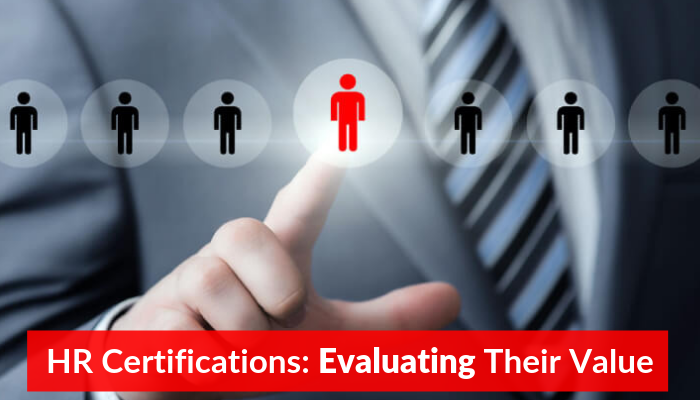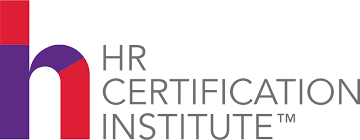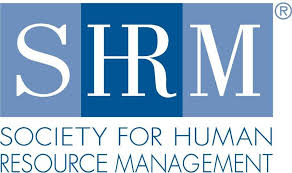If you have ever browsed the HR Certification Institute’s and the Society for Human Resource Management’s available certifications and determined to pass for time or financial reasons, you might want to revisit that idea.
While you won’t be expected to get an HR certificate to work in human resources, it can be a helpful resource for some HR professionals’ careers.

The Types of HR Certifications
The two most common HR certification providers for HR professionals are HRCI and SHRM. Each of them gives various certifications to help train HR pros on additional skills and further their careers.
There are certifications possible for every level of experience, but all need an exam administered through the certification provider.
HRCI
The HR Certification Institute offers several credentials, but the two most commonly seen after people’s names are the Professional in Human Resources (PHR) and Senior Professional in Human Resources (SPHR).
HRCI has been around since 1976 and is accredited by The National Commission for Certifying Agencies (NCCA)
Their list of available HR certifications covers:
1. Associate Professional in Human Resources (aPHR):
This aPHR certification is designed for HR professionals who are just getting started, and as such, it doesn’t require any previous HR experience.
An aPHR is provided towards college students planning careers in human resources, so it places a heavy emphasis on necessary skills and HR knowledge like HR operations, recruitment and selection, compensation and benefits, human resources and retention, employee relations, and health, safety, and security.
2. Professional in Human Resources (PHR):
This PHR Certification is considered an advanced certification and is meant to indicate skills in technical and operational aspects of HR management.
To be eligible for the PHR, you must now have one of the following combinations of experience:
- One year of experience in a professional-level HR position and a master’s degree or higher, two years
- Or more extensive experience in a professional-level HR position and a bachelor’s degree,
- Or at least four years of experience in a professional-level HR position and a high school diploma.
The PHR certification focuses on employee labor relations, business management, talent planning and acquisition, total rewards, and learning and development.
3. Senior Professional in Human Resources (SPHR):
If you are looking to progress into a manager position in your HR department or want to take on responsibilities relating to strategy rather than implementation, this is the right certification for you.
To qualify for this SPHR certification, you must attend one of the following sets of criteria:
- At least four years of experience in a professional-level HR position and a master’s degree or higher,
- At least five years of experience in a professional-level HR position and a bachelor’s degree, or
- At least seven years of experience in a known-level HR position and a high school diploma.
The topics on the SPHR certification exam will have you studying up on leadership and strategy, employee relations and engagement, talent planning and acquisition, learning and development, and total rewards.
4. Global Professional in Human Resources (GPHR):
This certification is planned for HR professionals working in a global marketplace who have a role that supports organizational growth on a worldwide level.
Eligibility for this GPHR certification requires one of the following combinations:
- At least two years of experience in a global professional-level HR position and a master’s degree or higher,
- At least three years of experience in a professional-level HR position and a bachelor’s degree, or
- At least four years of experience in a professional-level HR profession.
The GPHR certification helps prepare you for strategic HR management, talent and organizational development, global talent acquisition and mobility, comprehensive compensation and benefits, and workforce relations and risk management.
SHRM
The Society for Human Resource Management has a more limited but still prestigious offering of HR certifications. SHRM is an HR membership organization.
HRCI used to administer their certifications via SHRM, but in 2014 SHRM created their certification program. According to the SHRM website, more than 5,000 employees seek out SHRM certifications each month.
1. SHRM Certified Professional (SHRM-CP):
This SHRM-CP certification is intended for HR professionals involved in policy and strategy implementation who deliver and perform operational HR functions.
You may qualify for this certification in one of the following ways:
- HR-related bachelor’s degree and have three years in an HR role, are working on a non-HR related degree and
- Have four years’ experience in an HR role, have an HR-related bachelor’s degree and one year in an HR role,
- Have a non-HR degree and two years in an HR role, have a bachelor degree in an HR-related field and be currently working in HR, or
- Have a non-HR-related degree and one year in an HR role.
2. SHRM Senior Certified Professional (SHRM-SCP):
SHRM-SCPs benefit HR professionals whose focus is helping develop strategies, leading an HR department, and contributing to organizational goals.
Eligibility for this SHRM-SCP certification needs one of the following:
- HR-related degree and have six years in an HR role, are working on a non-HR related degree and have seven years in an HR role,
- Have an HR-related bachelor’s degree and four years in HR, have a non-HR bachelor’s degree and five years in HR,
- Have a graduate HR-related degree and three years in HR or have a non-HR graduate degree and four years in HR.
Should You Earn an HR Certification?
Unlike some professions, professionals serving in human resources do not need to hold a professional certification to find and keep a job.
Though the HR Certification Institute (HRCI) and Society for Human Resource Management (SHRM) offer many different certifications for all kinds of experience levels and knowledge areas, these certifications are not always needed when looking for an HR job.
How Much Do HR Certifications Cost?
You are going to spend money to get your HR certification, but the hope is the cash you pay upfront will be worth it for an increased salary and more significant job candidates in the long run.
HRCI Certification Costs
- aPHR: $400
- PHR: $495
- SPHR: $595
- GPHR: $595
SHRM Certification Costs
- SHRM-CP and SHRM-SCP:
- With an SHRM membership: $350
- Without an SHRM membership: $450
An SHRM membership costs $209 a year, $95 a year for an SHRM Global Online Membership, or $40 a year for an SHRM Student Membership.
Benefits of HR Certification
1. Career Advancement:
Whether you are looking to break into the field of HR or have been working for a while and are seeing to move up, there are few better ways than HR certification to prove your value.
A study approved by the HRCI found that 96% of employers believe HR certifications are essential and, when reviewing job applications, would like a candidate with certification over a Non-HR certified candidate.
In short, having certification gives you stand out from the crowd and increases your chances of landing a job or promotion.
2. International Recognition
If you prepare to work for an international company or take your skills to a country other than the U.S., you should understand that HR certification is a precious commodity when dealing with global employers.
The HRCI also found that professional certification was second only to measure degrees when contemplating which credential employers valued most.
Also, certification was seen as the best-performing qualification in several fields, including career advancement and return on investment, or ROI.
Better yet, you don’t even require to hold a certification specific to the international market. While globally-focused HR certifications such as the PHR and GPHR are undoubtedly valuable, other credentials such as the SHRM-CP and SPHR are also recognized in other countries as they are seen to add value and professionalism to international HR departments.
3. Better Salaries
Though HR certification is not given freely, the financial benefits that you can assume to receive will far exceed any initial costs that come from paying for the exam.
The HRCI-commissioned study found that professional certification was the single qualification that employers both extremely valued and gave a high willingness to pay for. Graduate degrees, while reasonable, did not also generate a desire to spend.
A study by Pay looked at HR salaries in 20 metropolitan areas and found that professionals with specific certifications could expect to earn up to $59,385 more than their uncertified counterparts.
Arguments Against HR Certification
For all the benefits, making HR credentials does have its downsides and is far from a universally approved career decision.
The main objection from those who do not favor this path is that not all hiring managers consider in the value of HR certification.
While some companies attempt out applicants who hold certifications, other hiring managers will ignore these credentials, instead preferring to look at a candidate’s overall skill set and level of experience.
In the eyes of some managers, having a sufficient track record means more than having HR certification.
Making a financial commitment, only to learn that a prospective employer does not value certification, is an authentic problem for many professionals.
Earning certification can be a massive waste of time and money if your expected employer does not value such a qualification.
Conclusion
An HR certification requires a real investment in time and money, but it could be the boost you need to take your career to the next level. But don’t rush into getting a certification right away. Carefully consider your career path and if certification will benefit you.
Make sure you take the time to select the right HR certification for you, and once you have put your resources into a certification stay certified by completing the necessary recertification credits. Maybe it’s not a requirement for success in an HR career, but evidence shows it will probably be a smart move for your career.






